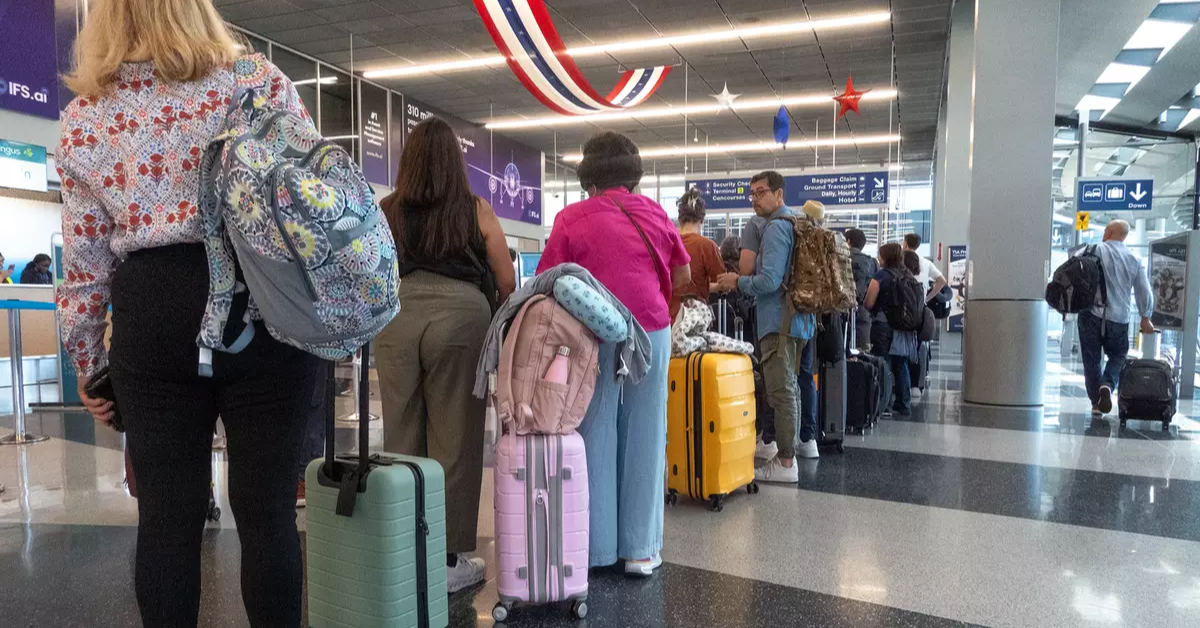Berlin, Germany – A wave of travel advisories from various European countries is sounding alarm bells for travelers planning trips to the United States. Following reports of arrests, detentions, and deportations of European nationals at U.S. borders, governments including Germany, the United Kingdom, Ireland, and others have updated their travel guidance, citing increasingly strict U.S. immigration policies and new requirements concerning gender identification.
These warnings underscore mounting concerns about the unpredictability of U.S. border enforcement and the impact of recent U.S. immigration regulations on travelers—especially transgender and LGBTQ+ individuals. This unprecedented coordinated response from European diplomatic authorities reflects deep unease about what some experts describe as a tightening and politicization of American immigration practices.
Germany’s Stern Warning After Citizen Detentions
Germany’s Foreign Office sharply revised its travel advisory following multiple reports that German nationals were detained and even deported while attempting to enter the U.S. According to reports, three German citizens were recently detained at the border, prompting urgent consular interventions.
A German official told NPR:
“Our consulates are actively engaging with detained citizens and coordinating with U.S. authorities to ensure their welfare.”
The German government’s official statement highlights that holding a valid ESTA authorization or U.S. visa no longer guarantees entry. Travelers are strongly advised to carry proof of return travel and be aware that decisions made by U.S. border officials are final, with no legal recourse or intervention possible from German diplomatic missions.
- Valid ESTA or visas do not guarantee entry into the U.S.
- Travelers must carry proof of return journey (e.g., flight booking)
- No legal appeal exists against denial of entry
- German consulates maintain close contact with detained citizens’ families
United Kingdom and Ireland: Heightened Entry Requirements and Gender Policies
The United Kingdom has followed Germany’s lead by issuing stern warnings regarding strict enforcement of U.S. immigration rules. Following the recent arrest of a British tourist at the U.S.-Canada border, the UK Foreign Office clearly states that travelers could face arrest, detention, and deportation for failing to comply with entry requirements, including presenting valid visas or ESTA for the specific purpose of their visit.
The UK advisory states emphatically:
“You may be liable to arrest or detention if you break the rules,”
marking unusually direct language that reflects the seriousness of the new landscape.
Meanwhile, Ireland updated guidance for transgender travelers, warning that U.S. officials require ESTA and visa applications to reflect traveler’s biological sex at birth. Those whose passport gender differs from birth sex are urged to contact the U.S. Embassy in Dublin before travel, revealing significant new bureaucratic hurdles.
- U.K. warns about consequences for visa overstays or false information
- Ireland requires declaring sex at birth for ESTA applications
- Transgender travelers face enhanced scrutiny and potential entry barriers
Expanding European Response: Netherlands, Belgium, Denmark, Finland, and Beyond
The Netherlands and Belgium have joined the growing list of European nations updating travel advice in response to tightened U.S. border policies, particularly concerning LGBTQ+ travelers. The Netherlands Ministry of Foreign Affairs instructs citizens to include their gender assigned at birth on visa and ESTA forms.
Belgium has announced forthcoming advisory updates focusing on the challenges posed by recent border control changes.
In the Nordic countries, Denmark warns holders of an X gender marker on their passports about possible difficulties in U.S. entry, recommending they consult the U.S. embassy beforehand. Finland, recognized as the world’s happiest country, also advises caution, citing the risk of denied travel permits if passport gender markers conflict with biological sex, referencing a 2025 U.S. executive order restricting recognized genders to male and female.
- Netherlands advises inclusion of gender at birth on applications
- Belgium preparing similar travel advisory updates
- Denmark and Finland warn transgender and non-binary travelers of entry challenges
- Finland cites U.S. executive order limiting gender recognition
Norway’s Urgent Travel Advisory Over U.S. Entry Uncertainties
Norway swiftly overhauled its travel advisory on March 28, 2025, responding to growing concerns over detainment of European travelers at U.S. borders, even those with valid visas or ESTA. The Norwegian Foreign Ministry emphasized that entry to the U.S. is never guaranteed and rests entirely on the discretion of U.S. immigration officials, leaving travelers vulnerable to abrupt denial without recourse.
Spokesperson Laik Hanbaly highlighted that the update aimed to clarify changes in gender recognition policies at U.S. borders and advise Norwegian citizens accordingly.
“The unpredictable enforcement of U.S. immigration rules, especially concerning gender identity, demands travelers remain vigilant and informed,”
Hanbaly said.
France and Spain Join the Collective European Stance
France and Spain have also updated their advisories, with France requiring travelers to declare their gender assigned at birth when applying for U.S. visas or ESTA. The French update followed a well-publicized case of a researcher denied entry after border agents searched his phone for politically sensitive content.
This widespread European response signals a broad recognition of the growing complexities for travelers to the U.S., catalyzed by the January 2025 Presidential Decree imposing strict gender documentation requirements and a tougher immigration stance.
What This Means for European Travelers
The coordinated series of travel advisories issued by European countries highlights several critical points for anyone considering travel to the United States:
- Possession of a visa or ESTA no longer guarantees U.S. entry.
- Strict verification of travel purpose, visa validity, and criminal history is being enforced.
- Travelers must present proof of return travel and prepare for no legal recourse if denied entry.
- New documentation requirements for gender markers—especially affecting transgender and non-binary individuals—introduce additional complexities.
- European diplomatic missions have limited ability to assist or reverse U.S. border decisions.
As these developments unfold, travelers heading to the U.S. are strongly encouraged to stay abreast of country-specific travel advisories and consult embassies or consulates in advance to minimize unexpected complications.







